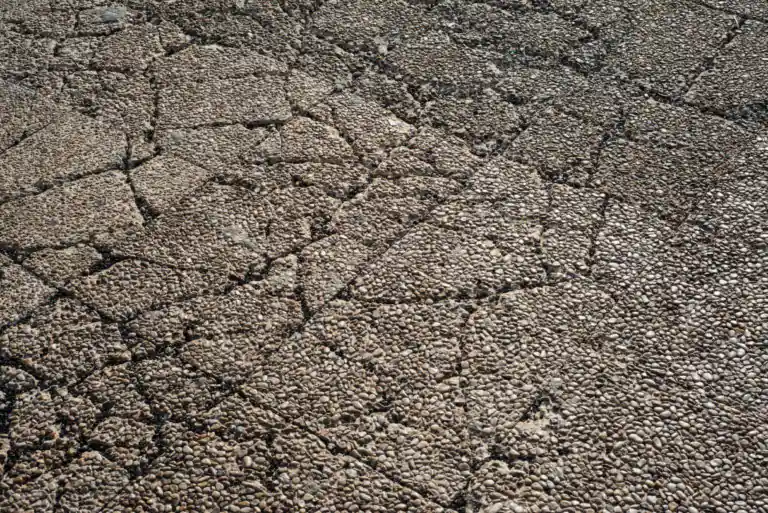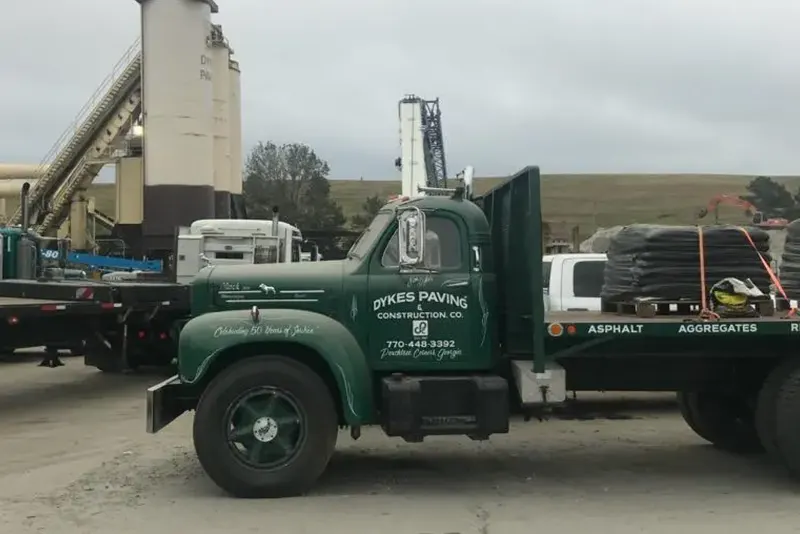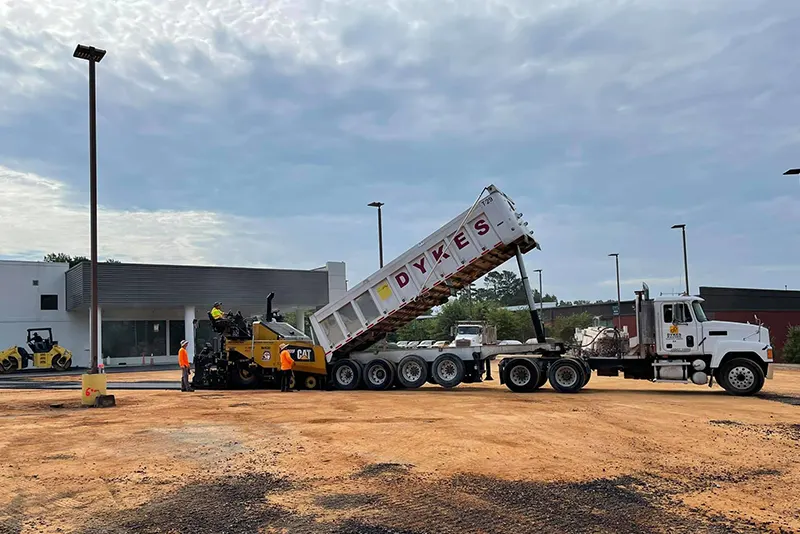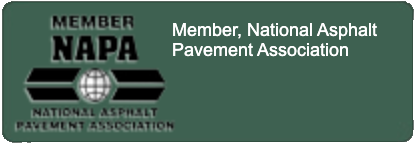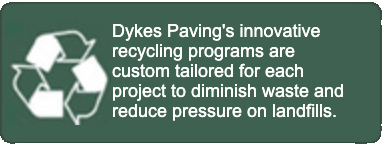The United States Geological Survey (USGS) may seem an odd place to begin a discussion about asphalt, but the USGS deals with hazards to health such as volcanoes, earthquakes, landslides and sealcoating. Yes, sealcoating of asphalt is a major health hazard, according to the USGS, because of the risk of exposure to cancer-causing polycyclic aromatic hydrocarbons (PAHs). Not only is sealcoating hazardous, it is unnecessary, since better options exist to preserve the look and finish of asphalt.
Sealcoating
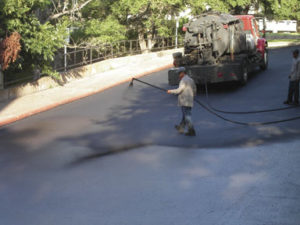
Sealcoating involves spraying a coal-tar pitch emulsion over existing asphalt, primarily for cosmetic reasons. It does almost nothing to improve the integrity of the asphalt, wears off in a year or two, and creates fine particulates that are tracked into your home or business, to become airborne and embed in the lungs. According to the USGS, “Results from a new study by researchers from Baylor University and the USGS indicate that living adjacent to a coal-tar-sealed pavement is associated with significant increases in estimated excess lifetime cancer risk, and that much of the increased risk occurs during early childhood.”
Many asphalt contractors offer coal-tar pitch sealcoating because their customers do not understand its risks. The product does give a smooth, deep black appearance to an asphalt driveway or parking lot – for a short time. Compared to other options that can last a decade or more, coal-tar pitch sealcoating usually only lasts one or two years before tires and foot traffic wears it off.
Coal-Tar Pitch
Sealcoating, whether done by homeowners buying five-gallon buckets from home improvement stores or sprayed down by contractors, is typically 20 to 35 percent coal-tar pitch, containing 50,000 to 100,000 parts per million polycyclic aromatic hydrocarbons (PAHs). This is far greater than the PAHs found in asphalt-based sealcoat materials, and many, many times greater than PAH exposure from resurfaced asphalt.
Asphalt-based Sealcoating
The southern, eastern and central United States typically uses coal-tar pitch sealcoating, with the western United States using asphalt-based sealcoat. This is because steel plants that create the raw product to make coal-tar pitch sealcoating are largely located in the eastern half of the United States. Getting asphalt-based sealcoating in sufficient quantities to be commercially useful is cost-prohibitive in the south and east.
Better Alternatives to Sealcoating
Resurfacing is a far greener, efficient and durable option than sealcoating. Resurfacing recycles the top layer of an asphalt paved area and lays down a fresh, 1 ½ to two-inch layer of fresh asphalt. This gives the desired smooth, black finish and releases far fewer PAHs than sealcoating.
In the hands of a professional contractors like Dykes Paving, with our innovative techniques such as Perma Flex® and our stewardship of resources, resurfacing:
- reduces consumption of raw materials
- saves energy
- releases far fewer volatiles
- recycles the old asphalt surface
If your commercial project, renovation or remodeling job is seeking Leadership in Energy & Environmental Design (LEED) certification, consider resurfacing rather than sealcoating. Benefits of resurfacing and recycling include:
- Conservation of natural habitat
- Diversion of waste destined for landfills
- Durability
- Less maintenance
- Lower costs
- Reduction of greenhouse gas emissions
A resurfaced driveway or parking lot is many times more durable than the superficial sealcoating sprayed on top of an existing asphalt surface. Because a thick, fresh layer of asphalt containing recycled material and new hot mix is applied and tamped down, the surface is unbroken and completely flat. Water runoff improves, vehicle damage is reduced, and trip and fall hazards diminish.
If you are concerned about avoiding exposure to cancer-causing PAHs for you, your family or employees, consider resurfacing your asphalt driveway or parking lot. Contact Dykes to discuss resurfacing options today.

